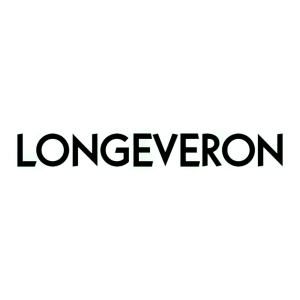Longeveron Announces Activation of Two New Clinical Sites in ELPIS II Trial of Lomecel-B for Hypoplastic Left Heart Syndrome (HLHS)
Longeveron (NASDAQ: LGVN), a clinical-stage biotechnology company, has activated two new clinical sites for the ELPIS II Trial, which assesses Lomecel-B injections for infants with Hypoplastic Left Heart Syndrome (HLHS). The trial, now in Phase 2, aims to enroll 38 infants and is funded by the NIH's NHLBI. The newly added sites are Advocate Children’s Hospital and Primary Children’s Hospital in Utah. CEO Geoff Green emphasized the importance of these additions for timely execution and increased participation options for families.
- Activation of two new clinical sites for the Phase 2 ELPIS II trial, expanding enrollment opportunities.
- Funding support from the NIH's NHLBI for the trial enhances credibility and resources.
- None.
Insights
Analyzing...
MIAMI, Oct. 20, 2021 (GLOBE NEWSWIRE) -- Longeveron Inc. (NASDAQ: LGVN) ("Longeveron" or "Company"), a clinical stage biotechnology company developing cellular therapies for chronic, aging-related and life-threatening conditions, announced today the activation of two new clinical sites for the currently enrolling ELPIS II Trial, evaluating Lomecel-B injection into the myocardium of infants with Hypoplastic Left Heart Syndrome (HLHS), a rare and life-threatening congenital heart defect. Lomecel-B is an investigational allogeneic, bone marrow-derived medicinal signaling cell (MSC) product manufactured in Longeveron’s cell processing facility in Miami, Florida.
The two newly activated clinical sites, which join the Ann and Robert H. Lurie Children’s Hospital of Chicago (Principal Investigator Sunjay Kaushal, M.D., Ph.D.) as open for enrollment, are:
- Advocate Children’s Hospital
- Principal Investigator: Narutoshi Hibino, M.D.
- Primary Children’s Hospital/University of Utah, Salt Lake City, Utah
- Principal Investigator: S. Adil Husain, M.D.
“We are pleased with the progress that Dr. Kaushal and the University of Texas Health Sciences Center are making in activating new clinical sites for enrollment,” stated Longeveron CEO Geoff Green. “The addition of these exceptional institutions, as well as future sites to be activated, is important for both timely execution of the ELPIS II trial, as well as for providing more options for families with children with HLHS to participate in the research.”
About the ELPIS II Trial
The HLHS program has transitioned into a Phase 2 trial titled: Evaluation of Lomecel-B™ Injection in Patients with Hypoplastic Left Heart Syndrome: A Phase 2b Clinical Trial (ELPIS II). ELPIS II is being funded by a grant from the National Institute of Health’s National Heart, Lung, and Blood Institute (NHLBI; Grant number 1UG3HL148318), in collaboration with Longeveron, and is led by Principal Investigator Sunjay Kaushal, M.D., Ph.D., Division Head, Cardiovascular-Thoracic Surgery, Ann and Robert H. Lurie Children’s Hospital of Chicago. With a target enrollment of 38 infants, the trial began enrollment in July 2021, and it is anticipated that up to seven children’s hospitals will be participating, all in major metropolitan centers located throughout the U.S. For more information regarding the trial design and location of clinical sites please visit clinicaltrials.gov (NCT04925024), and www.elpistrial.org hosted by the University of Texas Health Sciences Center which serves as the data coordinating center.
About the ELPIS I Trial
The Phase I, open-label single arm study was designed to assess safety and tolerability of intramyocardial injection of Lomecel-B administered to 10 infants with HLHS during Stage 2 bidirectional cavopulmonary anastomosis (BDCPA, or “Glenn procedure”) surgeries. The study met its primary endpoint, showing that intramyocardial injection of Lomecel-B at 2.5 × 106 cells/kg of body weight was well-tolerated, with no major adverse cardiac events (MACE), and no infections reported that were considered to be related to investigational treatment. The trial was partially funded by a grant from the Maryland Stem Cell Research Fund (MSCRF).
About Hypoplastic Left Heart Syndrome
HLHS is a rare congenital heart defect that affects approximately 1,000 babies per year in the U.S. Babies with HLHS are born with an underdeveloped left ventricle, which creates a life-threatening condition due to the heart’s inability to pump adequate amounts of blood throughout the body. Children must undergo a complex three-staged reconstructive surgery. Even with the advent of surgical intervention, babies with the condition still have a high rate of needing heart transplant, and are associated with high mortality. In the Phase 1 trial, the primary safety endpoint was met, with no major adverse cardiac events reported. The cell injections also did not cause infections attributable to the study product. Additional clinical safety and efficacy results from the Phase 1 trial are currently being analyzed.
In HLHS patients, the right ventricle is subject to chronic pressure overload due to the lack of left ventricle, and thus becomes dysfunctional, leading to heart failure. It is believed that the primary therapeutic benefit of MSCs comes from the secretion of bioactive molecules that promote neovascularization, favorable remodeling, and activation of endogenous stem cells and cardiomyocytes, ultimately leading to potential improvement in cardiac structure, function, and durability.
About Longeveron Inc.
Longeveron is a clinical stage biotechnology company developing cellular therapies for specific aging-related and life-threatening conditions. The Company’s lead investigational product is the LOMECEL-B™ cell-based therapy product (“Lomecel-B”), which is derived from culture-expanded medicinal signaling cells (MSCs) that are sourced from bone marrow of young, healthy adult donors. Longeveron believes that by using the same cells that promote tissue repair, organ maintenance, and immune system function, it can develop safe and effective therapies for some of the most difficult disorders associated with the aging process and other medical disorders. Longeveron is currently sponsoring Phase 1 and 2 clinical trials in the following indications: Aging Frailty, Alzheimer’s disease, the Metabolic Syndrome, Acute Respiratory Distress Syndrome (ARDS), and hypoplastic left heart syndrome (HLHS). The Company’s mission is to advance Lomecel-B and other cell-based product candidates into pivotal Phase 3 trials, with the goal of achieving regulatory approvals, subsequent commercialization, and broad use by the healthcare community. Additional information about the Company is available at www.longeveron.com.
Investor Contact:
Brendan Payne
Stern Investor Relations
Office Direct: 212-698-8695 |Office Main: 212-362-1200
brendan.payne@sternir.com | www.sternir.com
Source: Longeveron Inc
Source: LGVN








